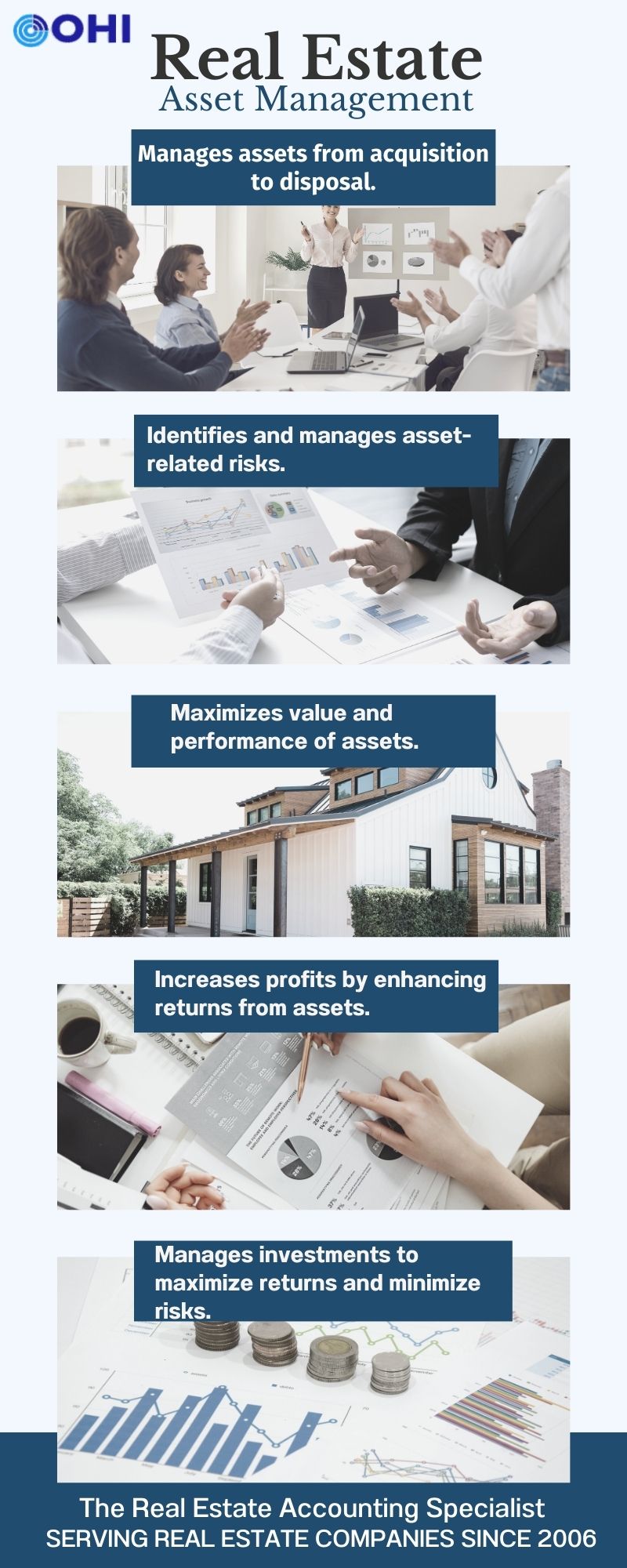
Managing Real Estate Assets: Best Practices in Accounting and Reporting – An In-Depth Examination
- August 4, 2023
- OHI

The expansive universe of real estate, abundant in opportunities and equally rife with complexities, has continued to evolve and grow in scale and sophistication. As we navigate through an era that upholds the highest standards of transparency, diligence, and precision in financial reporting, the management of real estate assets has transfigured into a nuanced blend of strategic planning and an in-depth understanding of accounting and reporting practices. The ultimate objective of this integration is to equip real estate professionals with the tools they need to maximize their assets’ value and boost profitability, delivering superior returns to all stakeholders.
The term ‘real estate asset management‘ encompasses the holistic management of different types of real estate. From residential units like apartments and detached houses to commercial and industrial properties like shopping centers and office buildings, it spans a vast spectrum. Central to this process are the key functions of operating, controlling, maintaining, and overseeing real estate assets to unlock their maximum value and generate profit.
Yet, the attainment of these objectives cannot be divorced from a comprehensive understanding and implementation of the best accounting and reporting practices. The integration of these elements is a critical aspect of real estate management, ensuring financial transparency and accuracy. By strategically marrying effective management strategies with robust financial record-keeping and reporting, real estate managers can unleash the full potential of their assets.

Real estate accounting, a subset of accounting dedicated to managing and analyzing the financial aspects linked with owning and operating real estate, is a specialized field. It’s composed of several essential components, each playing a pivotal role in painting an accurate financial picture:
The establishment of effective and compliant real estate asset accounting hinges on adherence to several best practices:
While accounting involves the collection and organization of financial data, reporting is the act of presenting this data in a way that is easy to understand and valuable for stakeholders. Effective real estate asset reporting is an art that can be mastered by following certain best practices:
Real estate asset management, fortified by adherence to the best practices in accounting and reporting, can build a well-structured, efficient, and transparent system that adds significant value to any business. By investing in meticulous record-keeping, implementing regular audits, leveraging cutting-edge software, and strictly adhering to laws and regulations, businesses can set a gold standard in real estate asset accounting.
On the reporting front, the importance of thorough and transparent communication cannot be overstated. By focusing on transparency, consistency, effective utilization of KPIs, and regular reporting, businesses can foster trust and forge stronger, more reliable relationships with all stakeholders.
In conclusion, while the challenge of managing real estate assets is substantial, the right strategies and practices can transform these assets into robust pillars of financial growth and stability. These practices, when implemented with diligence and consistency, can lead to more transparent, accurate, and insightful financial reporting, enabling stakeholders to make better-informed decisions.
Contact us for a customized NO OBLIGATION proposal for outsourcing your accounting activities.







